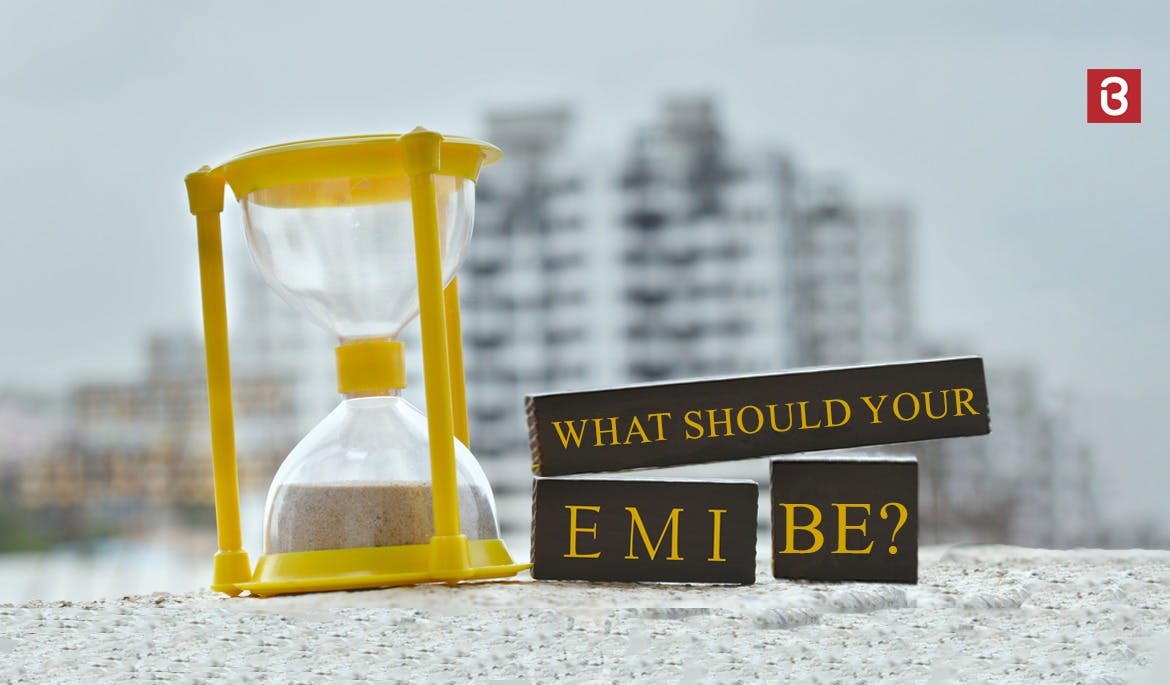How Much Should Your EMI Be?
Are you planning to invest in real estate or a residential property in Pune? Since you are here, we believe the answer is yes, and we understand that you are looking for a way to manage and plan your EMIs in the best way possible.
This guide will help you plan your EMI expenses without impacting your personal and emergency budgets.
So, let's get started!
Buying a house is one of the most significant purchases, as it is considered a once-in-a-lifetime investment. And because residential home loans are readily available, you would want to utilize them to finance your home purchase. However, if not managed properly you may experience financial difficulties after buying a house and find it tricky to manage your household expenses while paying a large sum towards monthly EMIs.
The amount of EMI you pay depends on the amount of money you borrow. The amount of money you can borrow may depend on what your lender feels you are qualified to borrow.
If we talk about Pune and Mumbai, particularly, most families have two working members, and the chances of securing a higher loan are good. However, just because you are qualified for a large sum of loan does not imply you should apply for it. We suggest borrowing an amount you can repay without feeling the burden of EMIs.
When investing in a residential property in Pune, you shouldn't just consider EMIs as the only deciding factor. You will additionally need to pay 15-20% of the total cost as a down payment from your pocket. We would not recommend you deplete your savings funds to make this payment, as it would be wrong.
When purchasing a residential property still under construction, you should also account for paying rent in addition to your EMI. Even if a bank is ready to grant you a substantial loan, you must determine if you can afford the rent and the EMI.
In addition to paying your housing loan EMIs, you may also need to pay for other fixed expenditures such as term and health insurance, car insurance, school tuition fee, etc. If you already have a personal loan, your EMI payment capacity for a house loan would reduce even further.
Financial advisors recommend that your EMIs for all your loans should not exceed 45-50 percent of your entire monthly income. If you are under 30 and don't have a lot of financial obligations, you could stretch your monthly EMIs to 50% of your salary. But we suggest keeping it at 40% at max for better financial stability.
Depending on your earnings, 15-20 percent of your gross monthly income should be invested to build a retirement fund that can last at least 20 years.
There are a few strategies that might assist you in reducing your real estate loan EMI. Let's discuss some of them here.
● The bigger the loan, the more interest you'll have to pay and the higher your EMIs will be. Settling a large portion as a down payment is a prudent choice. It will help you lower your loan's EMI and save money in the long run.
● Opt for a Step-Down EMI Plan offered by several banks and non-banking financing providers. According to this arrangement, you must pay a higher EMI at the beginning of the term, but the EMI amount steadily reduces as the principal balance falls with each monthly payment. This strategy might help you save money on interest in the later years of your loan.
● If you have an excellent relationship with your existing bank, you could negotiate a reduced interest rate on your loan. Banks do so for their current customers to boost brand loyalty and attract new ones.
● Pre-paying your debt might save you money. You could partially or entirely pay back your debt if you have earned a raise or have acquired some new money. As we all know, a larger loan balance means a greater interest rate.
● Balance transfer loans have lower interest rates and can help you lower your loan EMIs. However, you should check for additional variables such as processing costs and other expenses to ensure that shifting your loan to another bank is worthwhile.
Taking a loan to buy real estate or residential property is a good investment. A loan can fund a short-term need or help you achieve a long-term objective. However, considering the interest charges on the EMI due, a loan is also an extra price. A higher interest rate will increase the cost of repaying your mortgage. The amount of EMI you must pay increases automatically as the rate of interest rises. Hence, we always advise our clients to take a wise and informed decision when taking a loan to buy property in Pune or Mumbai.

